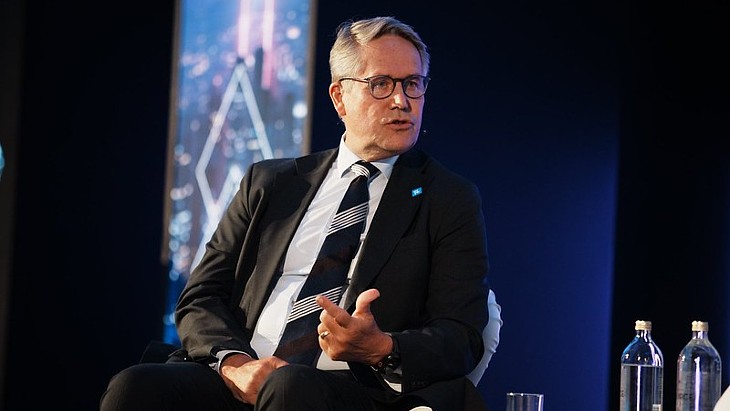Candu units are pressurised heavy water reactors designed to operate for 30 years, with a further 30 years available subject to refurbishment. This includes the replacement of key reactor components such as steam generators, pressure tubes, calandria tubes and feeder tubes. It involves removing all the reactor's fuel and heavy water and isolating it from the rest of the power station before it is dismantled. Thousands of components, including those that are not accessible when the reactor is assembled, are inspected, and all 480 fuel channels and 960 feeder tubes are replaced during the high-precision rebuild.
In the newly-formed consortium, Candu Energy and Ansaldo - the original design companies for Cernavoda 1's reactor system and turbine generator system - will be responsible for designing the nuclear reactor system and turbine generator system and purchasing equipment, respectively. Meanwhile, KHNP will be responsible for the overall construction as well as infrastructure construction, including radioactive waste storage facilities.
KHNP - which owns and operates Candu pressurised heavy water reactors in South Korea - was directly responsible for project and construction management when replacing the pressure tubes at Wolsong unit 1 in 2009.
"With the formation of the consortium, the three companies plan to begin preparing business proposals in earnest and then begin contract negotiations with Romania's nuclear energy company SN Nuclearelectrica, the ordering company," KHNP said. The contract - valued at USDS1.85 billion - is expected to be concluded within the first half of 2024.
KHNP noted that other Korean companies - including KEPCO KPS, Doosan Energy, Hyundai Engineering & Construction, Samsung C&T, as well as domestic small and medium-sized nuclear power companies - will also participate in the project.
"KHNP maintains a deep relationship of trust with Nuclearelectrica, including winning the contract to build a tritium removal facility for the Cernavoda nuclear power plant last June," noted KHNP CEO Hwang Joo-ho. "We will continue to cooperate closely with the ordering company and consortium members to achieve the final solution. We will do our best to ensure that the contract is successful."
Cernavoda is the only nuclear power plant in Romania and consists of two 650 MWe Candu reactors. Unit 1 went into commercial operation in 1996 and unit 2 in 2007. Nuclearelectrica plans to extend the operating life of unit 1 to 60 years. Most of the work on units 3 and 4 - like units 1 and 2, Candu-6 reactors - was done in the 1980s prior to the fall of the government of Nicolae Ceausescu in 1989. Work is now on-going to construct units 3 and 4, with scheduled commercial operation in 2030 and 2031.
The unit 1 refurbishment project began in 2017 and is currently in the second of three phases. This phase, due to last from February 2022 to 2026, covers providing the financial resources, negotiating and granting engineering, procurement and construction contracts, assessing, preparing and scheduling the activities to be carried and obtaining all the authorisations and approvals necessary to start the project. The third phase, scheduled for 2027 to 2029, starts with the shutdown of unit 1 and includes all the work required on it and its recommissioning.
In July 2022, Candu Energy signed the first contract for the refurbishment of Cernavoda 1. The work agreed with Nuclearelectrica is worth USD47 million and covers engineering and early procurement for the retubing of the reactor core. In March this year, it signed a two-year USD65 million agreement to conduct pre-project work for the lifetime extension of Cernavoda 1. The work is expected to include long lead and front-end engineering services for the unit.
Also in March, Ansaldo Nucleare signed a contract with Canada's SNC-Lavalin - Candu Energy's parent company - for the supply of engineering services for plant life extension of Cernavoda 1.

.jpg)



_33584.jpg)
_82983.jpg)
_34792.jpg)
_16403_79272.jpg)





